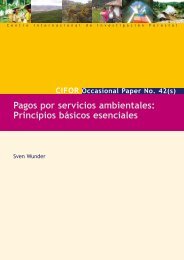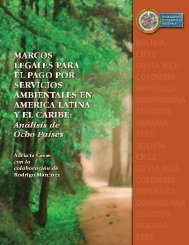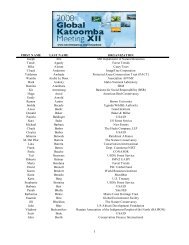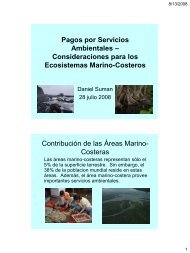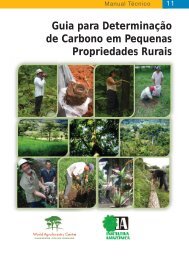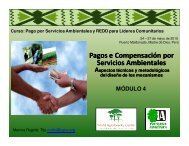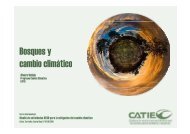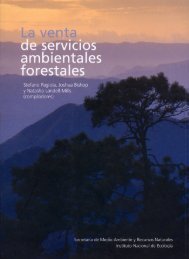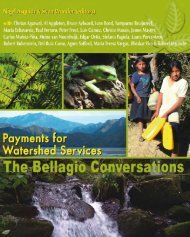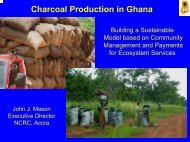Guide on Climate Change and Indigenous Peoples
Guide on Climate Change and Indigenous Peoples
Guide on Climate Change and Indigenous Peoples
- No tags were found...
You also want an ePaper? Increase the reach of your titles
YUMPU automatically turns print PDFs into web optimized ePapers that Google loves.
7Statement of the Chair of the Permanent Forumat the C<strong>on</strong>clusi<strong>on</strong> of COP14“I c<strong>on</strong>gratulate the Parties who insisted that the language of rights <strong>and</strong> theUNDRIP remain in the draft c<strong>on</strong>clusi<strong>on</strong>s. I know they fought hard for these<strong>and</strong> I certainly hope they will c<strong>on</strong>tinue to do this in the future negotiati<strong>on</strong>s.<strong>Indigenous</strong> peoples will c<strong>on</strong>tinue to oppose the REDD mechanisms if theirrights are not recognized by States <strong>and</strong> the UN, including the UNFCCC<strong>and</strong> the World Bank. They are very vulnerable to the adverse impacts ofclimate change, but they are also providing the soluti<strong>on</strong>s to climate change.Their traditi<strong>on</strong>al knowledge <strong>on</strong> forests <strong>and</strong> biodiversity is crucial for themethodological issues being tackled under REDD. Their participati<strong>on</strong> indesigning, implementing, m<strong>on</strong>itoring <strong>and</strong> evaluating REDD policies <strong>and</strong>proposals has to be ensured. Their free, prior <strong>and</strong> informed c<strong>on</strong>sent has to beobtained before any REDD mechanism is put into place In their territories.It is their right to decide whether to accept REDD or not.…REDD, if properly designed <strong>and</strong> implemented can still c<strong>on</strong>tribute tomitigati<strong>on</strong>. However, I believe that forests should not be used as carb<strong>on</strong>offsets for Annex 1 countries. Thus, emissi<strong>on</strong>s trading of forest carb<strong>on</strong> maynot be the right approach.”What are indigenous peoples organizati<strong>on</strong>s<strong>and</strong> networks doing to influence theofficial negotiating processes?• <strong>Indigenous</strong> peoples’ organizati<strong>on</strong>s initiated various processes to discussREDD further. In November 12-14, 2008, Tebtebba co-organized a “GlobalC<strong>on</strong>sultati<strong>on</strong> <strong>on</strong> REDD <strong>and</strong> <strong>Indigenous</strong> <strong>Peoples</strong>” in the Philippines whereindigenous peoples from Asia, Africa <strong>and</strong> Latin America participated. 7(See Annex D for therecommendati<strong>on</strong>s. 8 )• The results of thisC<strong>on</strong>sultati<strong>on</strong> waspresented at the FirstAd Hoc Technical ExpertGroup (AHTEG) <strong>on</strong> climatechange <strong>and</strong> biodiversity ofthe CBD. 9 On the basis ofthis, the AHTEG adopted areport c<strong>on</strong>taining a str<strong>on</strong>gPART V: REDD/REDD+ <strong>and</strong> <strong>Indigenous</strong> <strong>Peoples</strong> 59



